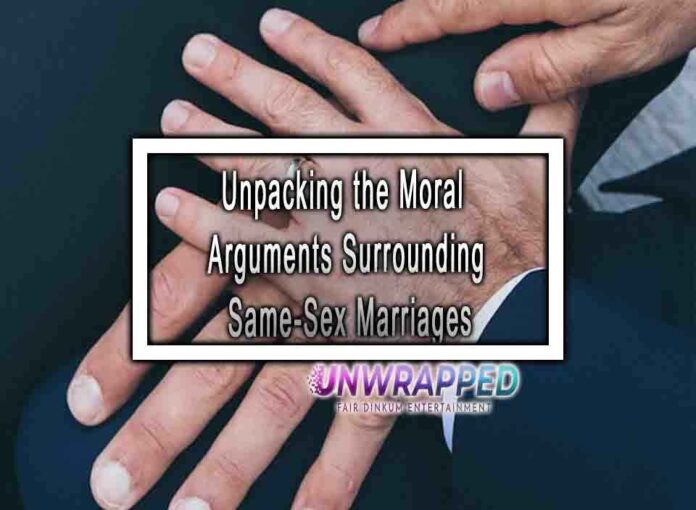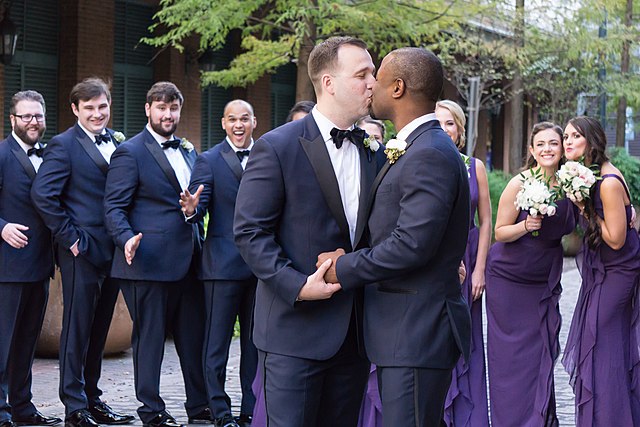The moral arguments surrounding same-sex marriages are complex and diverse, reflecting a range of beliefs and perspectives. It’s important to note that these arguments are not universally accepted, and attitudes toward same-sex marriage vary widely across different cultures and societies. Here are some key moral arguments that are often made on both sides of the debate:
Moral Arguments in Favor of Same-Sex Marriage:
- Equality and Human Rights: Many proponents argue that all individuals should have equal rights, including the right to marry the person they love. Denying same-sex couples the right to marry is seen as a violation of their basic human rights and a form of discrimination.
- Love and Commitment: Supporters of same-sex marriage argue that love and commitment between two consenting adults should be celebrated and legally recognized, regardless of their gender. They believe that marriage is a way to formalize and strengthen these bonds.

- Social Acceptance and Inclusion: Granting same-sex couples the right to marry can foster social acceptance and inclusion, reducing stigma and discrimination. It sends a message that LGBTQ+ individuals and their relationships are valued and respected.
- Stability and Family Benefits: Advocates argue that allowing same-sex couples to marry can provide legal protections and stability for families, especially when it comes to issues like inheritance, property rights, and child custody.
Moral Arguments Against Same-Sex Marriage:
- Religious Beliefs: Many opponents of same-sex marriage argue that it goes against their religious beliefs and traditional definitions of marriage. They contend that marriage should be limited to a union between a man and a woman, as defined in many religious texts.
- Social Norms and Tradition: Some argue that traditional marriage norms and societal stability are best preserved by adhering to heterosexual marriage. They believe that altering these norms may have unintended consequences.
- Child-Rearing: Critics of same-sex marriage may raise concerns about the ability of same-sex couples to provide the same environment for child-rearing as opposite-sex couples. They may argue that children need both a mother and a father for balanced development.
- Slippery Slope: Some opponents express concerns about a “slippery slope” argument, suggesting that if same-sex marriage is permitted, it could open the door to other unconventional forms of marriage, such as polygamy or incestuous marriages.
It’s important to recognize that many societies and legal systems have evolved over time to address and challenge these moral arguments, leading to changes in laws and policies. The moral arguments surrounding same-sex marriage often intersect with legal, social, and ethical considerations, and they continue to be a subject of debate and discussion in many parts of the world.
Public opinion on this topic has evolved, and same-sex marriage has been legalized in many countries. Nevertheless, it remains a contentious issue in some places, with ongoing debates about the intersection of individual rights, religious freedom, and societal values.












